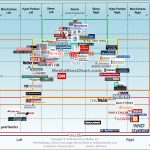Reality Mining and Obscurity
Human Ethics is based upon 3 principles: The first is a claim that there is something bigger than the human being itself that supports every system of thought or natural law. The second two are about how humans relate to one another in a social and political setting: Reciprocity and Anticipation.
Reciprocity compels us to treat everyone as an equal, the proverbial “Golden Rule”. Anticipation is the system of rules, knowledge, clues and taboos that enables us to predict how a human being will react in a certain situation, and ultimately how to evaluate and understand his or her actions in light of said rules. The normative part of ethics if you will. This simplification is a model of sorts to undestand Ethics as a whole. The minute aspects of all ethical systems are varied. But probably the majority of them will lead to this Ueber-model.
The Model as such is a tool that enables us to understand complex behaviours when there is a lack of data or of time to analyze every aspect of a problem. A model, if designed properly, can account for a large number of individual cases, but is only an approximation of the truth. Many cases will be left out or details will not be considered. And it is in the details that we really obtain meaning and identity.
So it is with the principle of Anticipation. We create a model of the human being in a certain ethical, cultural and social setting. We then use this model to predict and judge behaviours of individuals and groups. The catch-phrases of the anticipatory model are everywhere in our culture as memes, sayings and “Binsenweisheiten“. But it goes very much beyond phrases and memes. The anticipatory system is the basis of the literary canon of western civilization, from Homer, Aquinas and Isidore to Freud, Shakespeare and Cervantes. The Canon is our working model and hypothesis of the (western) human being. It explains the passions, dreams, behaviours, love, comic… everything possibly human. And it does so by force of repetition and approximation, rather than by facts and experimentation. One of the books of the canonic scholar and literary critic Harold Bloom is aptly titled: Shakespeare: The Invention of the Human.
But now fast forward. Chris Anderson published recently an article in Wired questioning the validity of scientific models. His point is, why do we need models if we can go for the real thing? Today we have enormous amounts of data and information available, and moreover, have the computational capability to process an interpret such information. This is going to have an impact on how we see and comprehend the world.
And what happens to the human model, the canon and the ethics?. We have not only information about wordly things like traffic and weather, we also have a lot of information about how humans behave. What they write and care about, what they think of events, how they react to catastrophes and how they fight against political systems. Even information on how they buy, whom do they know and speak to, and where do they travel to. The life of the “nomadic Cyborg” (W.Mitchell) is ever more lived out in the electronic Landscapes, Opens and Commons.
The practice of extracting this information, of making sense of all the data in the computer systems is called “Reality Mining“: In other words, how to obtain a picture of reality from raw data in a non-normative way. Don’t make assumptions (i.e. models) about reality, just extract reality from the data and understand it.
Alex Pentland of MIT Media Lab calls this “Honest Signals”. It is about how we can extract a clear picture of the human being, its environment and its social operations. With this information we can then make true statements about the affairs of the person and the social group. This could have applications in a wide variety of situations, like to determine the social sentiment of a group (a happy group or a civil unrest) from the tone of their voices. Or the emergence of public health problems and epidemics to be able to respond faster.
Nevertheless the demise of the model of the canon and the rise of Reality Mining in its stead opens up a series of questions, ethical, political and legal, that must be pointed out.
First of all: Privacy. Do we as citizens want to be exposed? One of the rights of citizenship is the one that creates my private sphere. And consequently the social civic sphere.
Second: The political form of free will. This area where we as a society still have the option to act out of free will and not in a perfectly anticipated way. What happens to free will if there is no anticipation, no measure of freedom to act outside of predictability? We need some degree of confidentiality to mantain the anticipatory system of Ethics.
Third: Social Capital. This is an important question for the crafting of a digital citizenship. The right of ownership and privacy of our personal information. Who owns my social links and spheres of influence? Everybody uses Social Capital for personal advantage: to obtain a job, to do sell or buy stuff, to be part of a Commons like the Internet. If my Social Capital is in the hands of social networking sites, should I receive compensation?
Here are two interesting quotes. One from Dr. Pentland speaking of Reality Mining, of which he says that “it’s an interesting Gods-eye view” (MIT Technology Review, 2008, TR10). Of course he is referring to the possibilities to do good.
The second from Bjarne Stroust-Rup, when asked by MIT Technology Review (Jul/Aug 2008) about the Future of the Web: “The total end of privacy. Governments, politicians, criminals, and friends will trawl through years of accumulated data (ours and what others collected) with unbelievably sophisticated tools. Obscurity and time passed will no longer be covers.”
Obscurity and Doubt are a necessary part of every ethical and political system. It is a precondition for freedom and justice. We need to make sure that we don’t lose all of it following the New Enlightment movement of Reality Mining.





